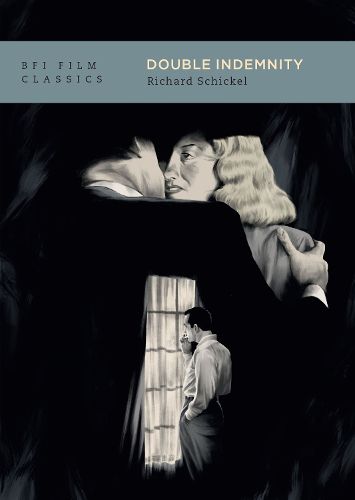Readings Newsletter
Become a Readings Member to make your shopping experience even easier.
Sign in or sign up for free!
You’re not far away from qualifying for FREE standard shipping within Australia
You’ve qualified for FREE standard shipping within Australia
The cart is loading…






Richard Schickel study of Billy Wilder's 1944 noir classic Double Indemnity traces in fascinating detail the genesis and realisation of the film: its literary origins in James M. Cain's hard-boiled crime novel, the difficult relations between Wilder and his scriptwriter Raymond Chandler, the casting of a reluctant Fred MacMurray and the late decision to cut from the film the expensively-shot final sequence of Neff's execution.
Schickel's places Double Indemnity in the context of early 1940s Hollywood, and the emergence of a new kind of crime thriller that later became known as 'film noir'. Double Indemnity was a key film for this new genre: its script creates two unforgettable criminal characters: the cynically manipulative femme fatale Phyllis Dietrichson (Barbara Stanwyck) and the likeable but amoral Walter Neff (Fred MacMurray). Billy Wilder's brilliant direction enmeshes them in chiaroscuro patterns, the bright California sun throwing shadows of venetian blinds across dusty rooms, shafts of harsh lamplight cutting through the night.
In his new afterword for this edition, critic James Naremore pays tribute to Schickel's analysis of the film and its contexts, and considers arguments around the film's ending as conceived by Wilder and as eventually screened.
$9.00 standard shipping within Australia
FREE standard shipping within Australia for orders over $100.00
Express & International shipping calculated at checkout
Stock availability can be subject to change without notice. We recommend calling the shop or contacting our online team to check availability of low stock items. Please see our Shopping Online page for more details.
Richard Schickel study of Billy Wilder's 1944 noir classic Double Indemnity traces in fascinating detail the genesis and realisation of the film: its literary origins in James M. Cain's hard-boiled crime novel, the difficult relations between Wilder and his scriptwriter Raymond Chandler, the casting of a reluctant Fred MacMurray and the late decision to cut from the film the expensively-shot final sequence of Neff's execution.
Schickel's places Double Indemnity in the context of early 1940s Hollywood, and the emergence of a new kind of crime thriller that later became known as 'film noir'. Double Indemnity was a key film for this new genre: its script creates two unforgettable criminal characters: the cynically manipulative femme fatale Phyllis Dietrichson (Barbara Stanwyck) and the likeable but amoral Walter Neff (Fred MacMurray). Billy Wilder's brilliant direction enmeshes them in chiaroscuro patterns, the bright California sun throwing shadows of venetian blinds across dusty rooms, shafts of harsh lamplight cutting through the night.
In his new afterword for this edition, critic James Naremore pays tribute to Schickel's analysis of the film and its contexts, and considers arguments around the film's ending as conceived by Wilder and as eventually screened.